The document discusses dependency injection (DI) in Angular and how it is used to configure services. It provides examples of different service types - constant, value, factory, service, and provider - and how they are registered and injected. The ngRoute module is also summarized as the core routing module in Angular that uses directives to render templates based on routes.
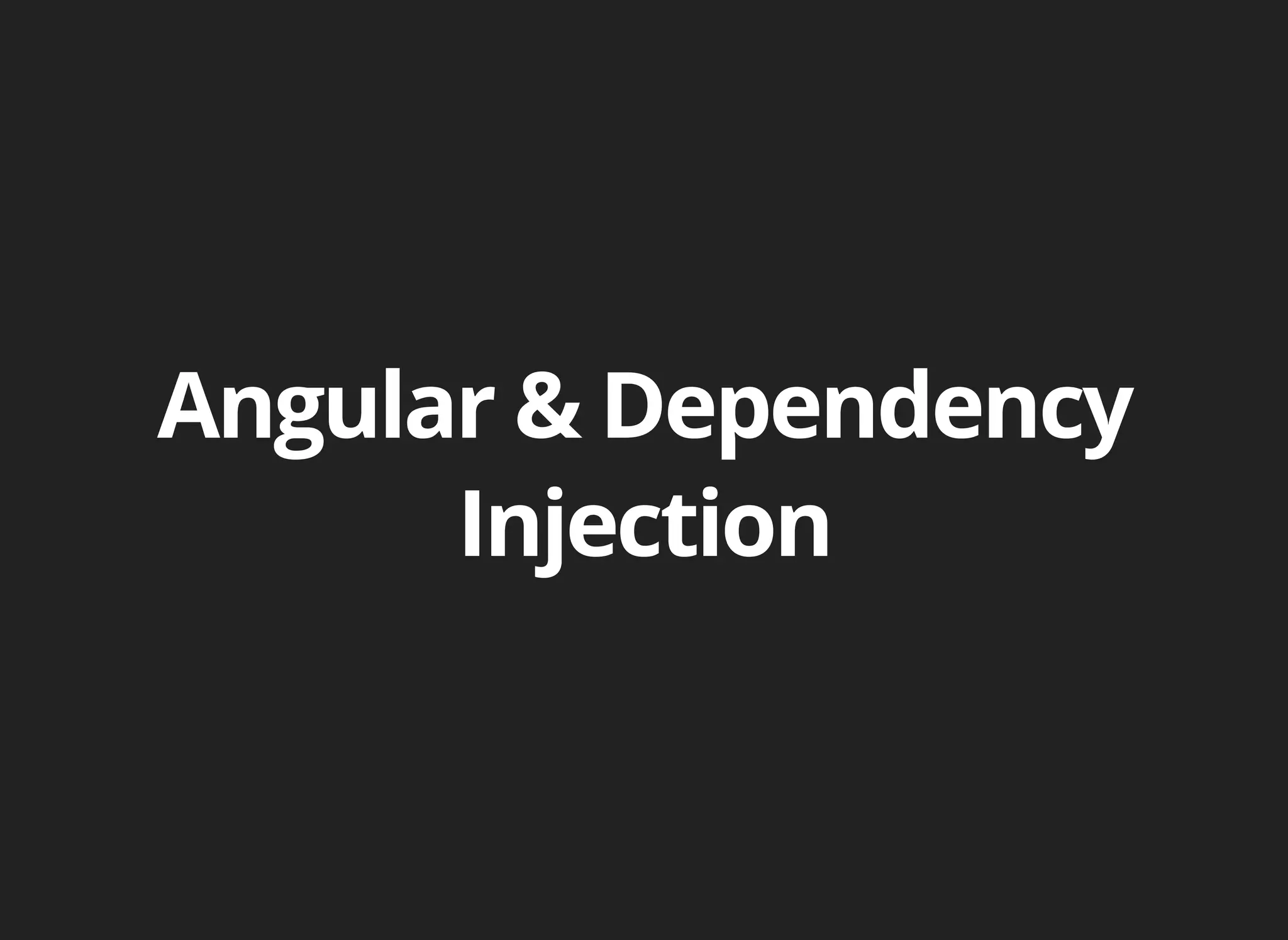

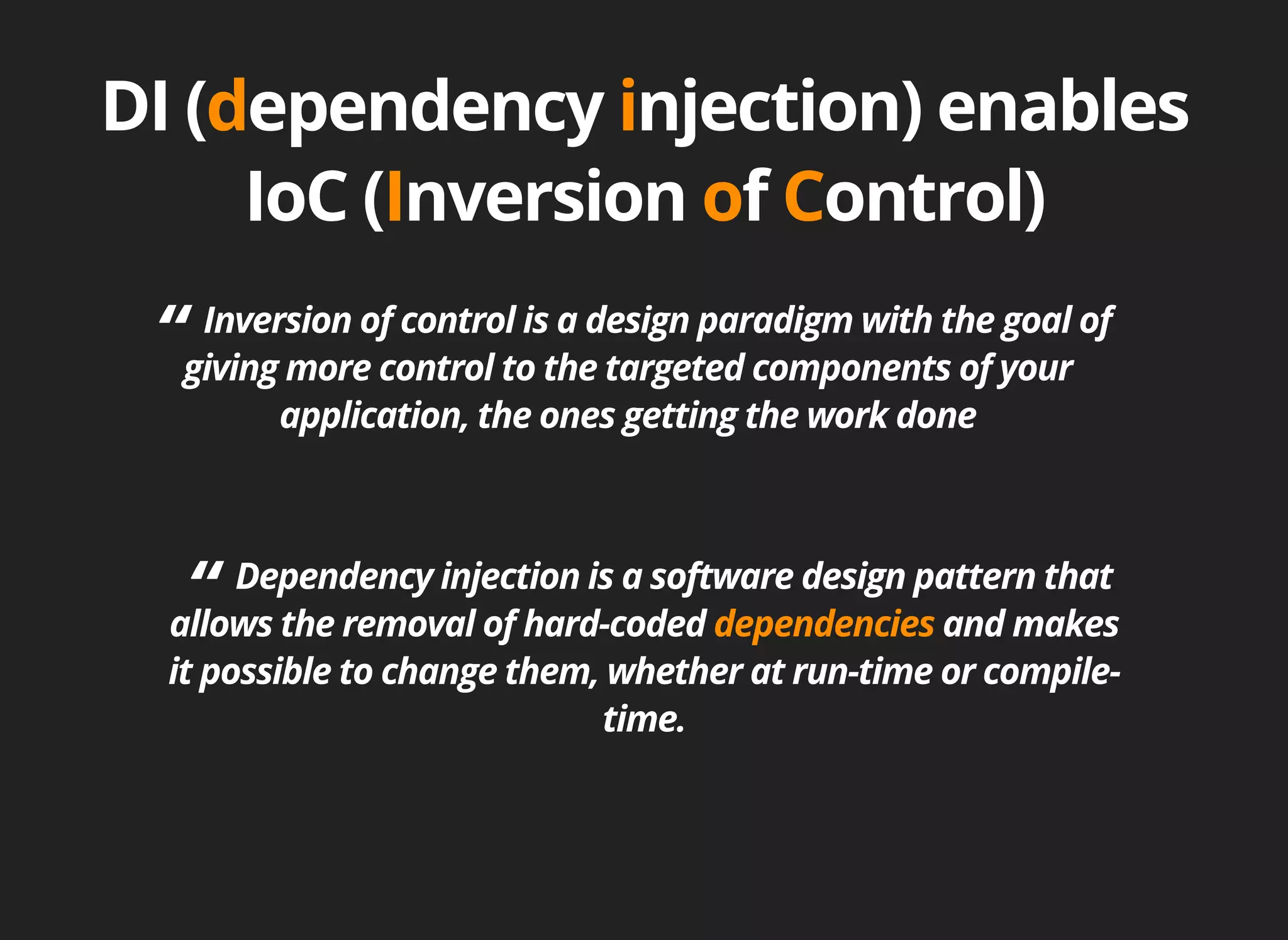
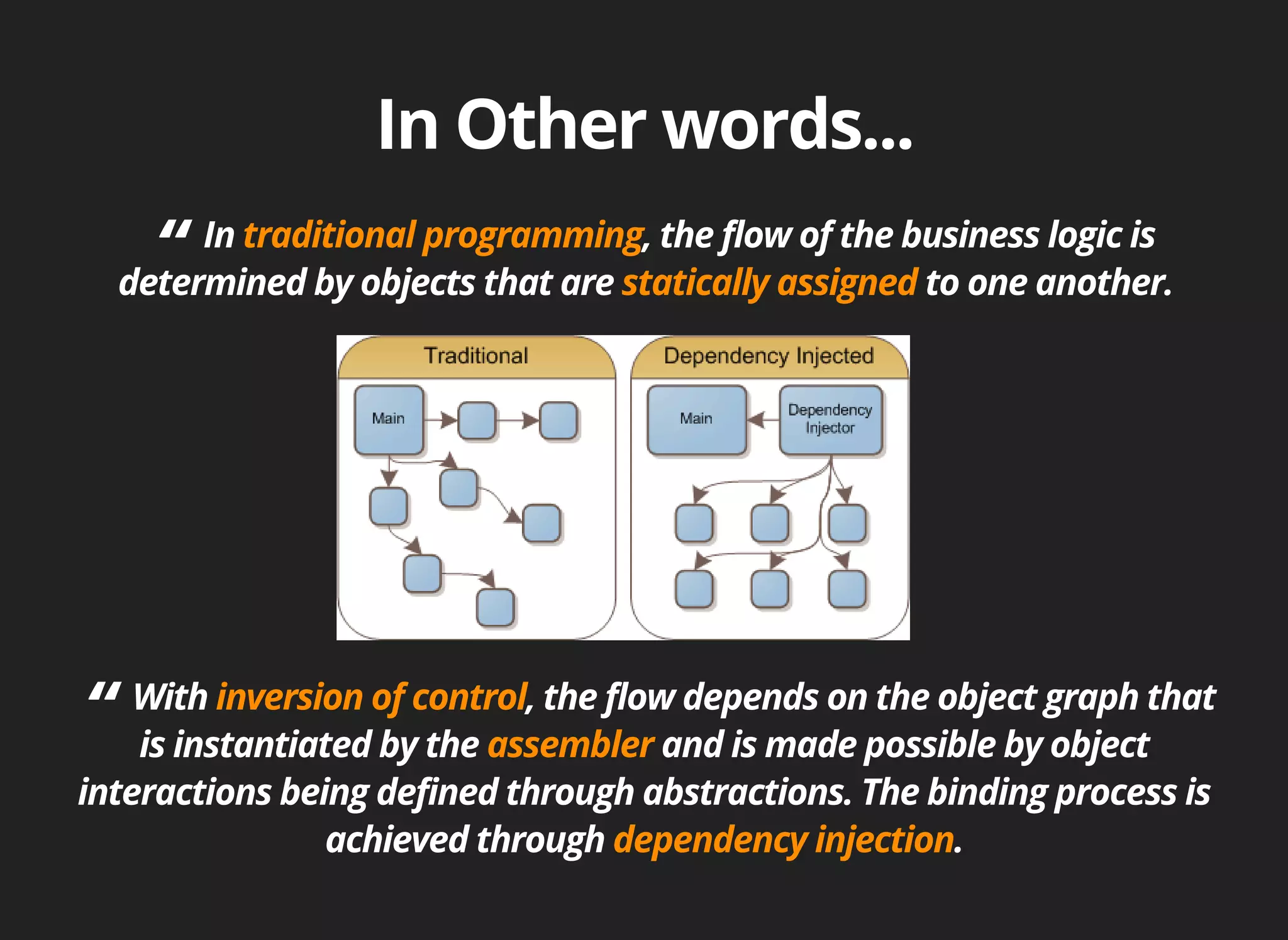
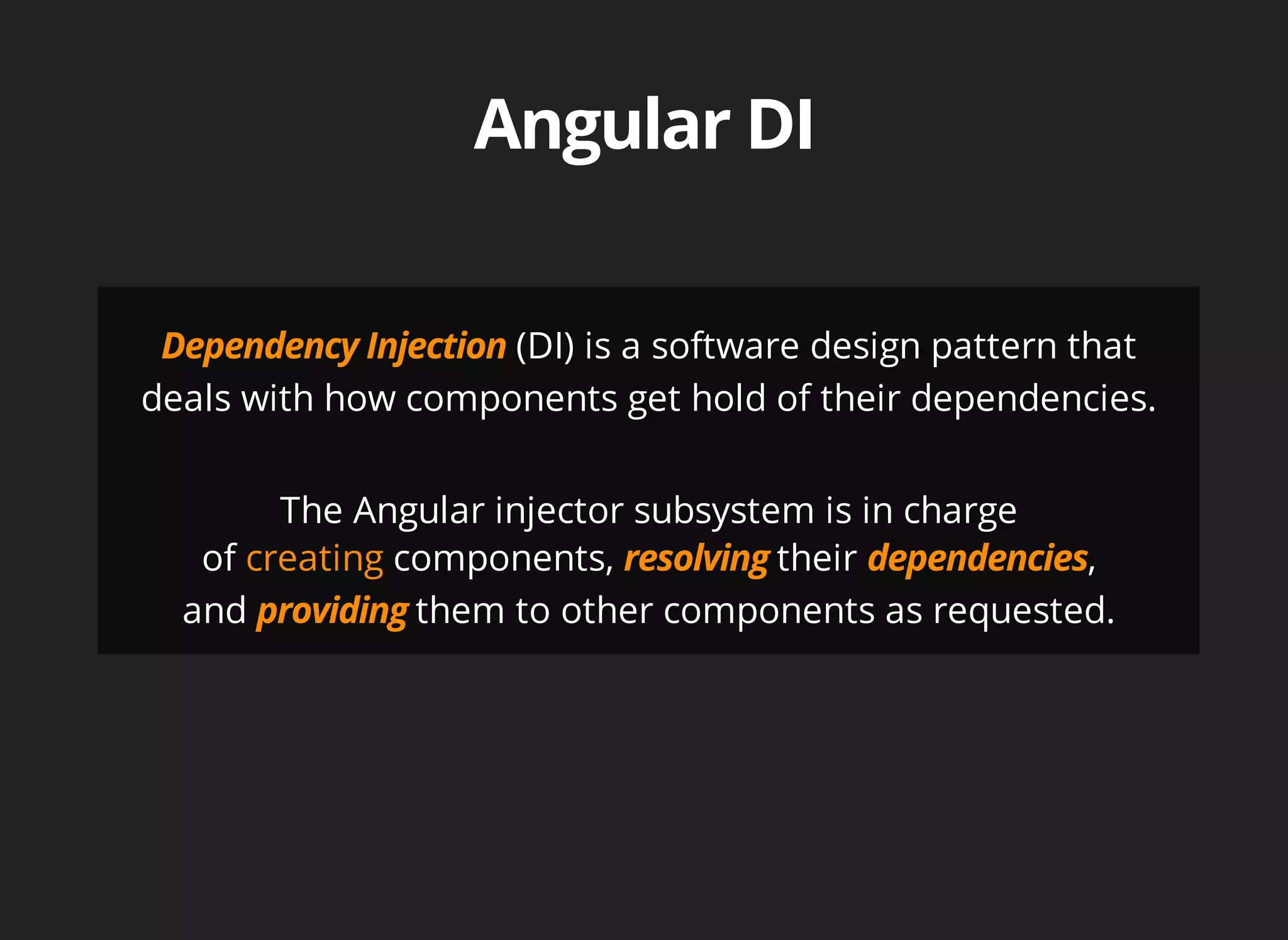
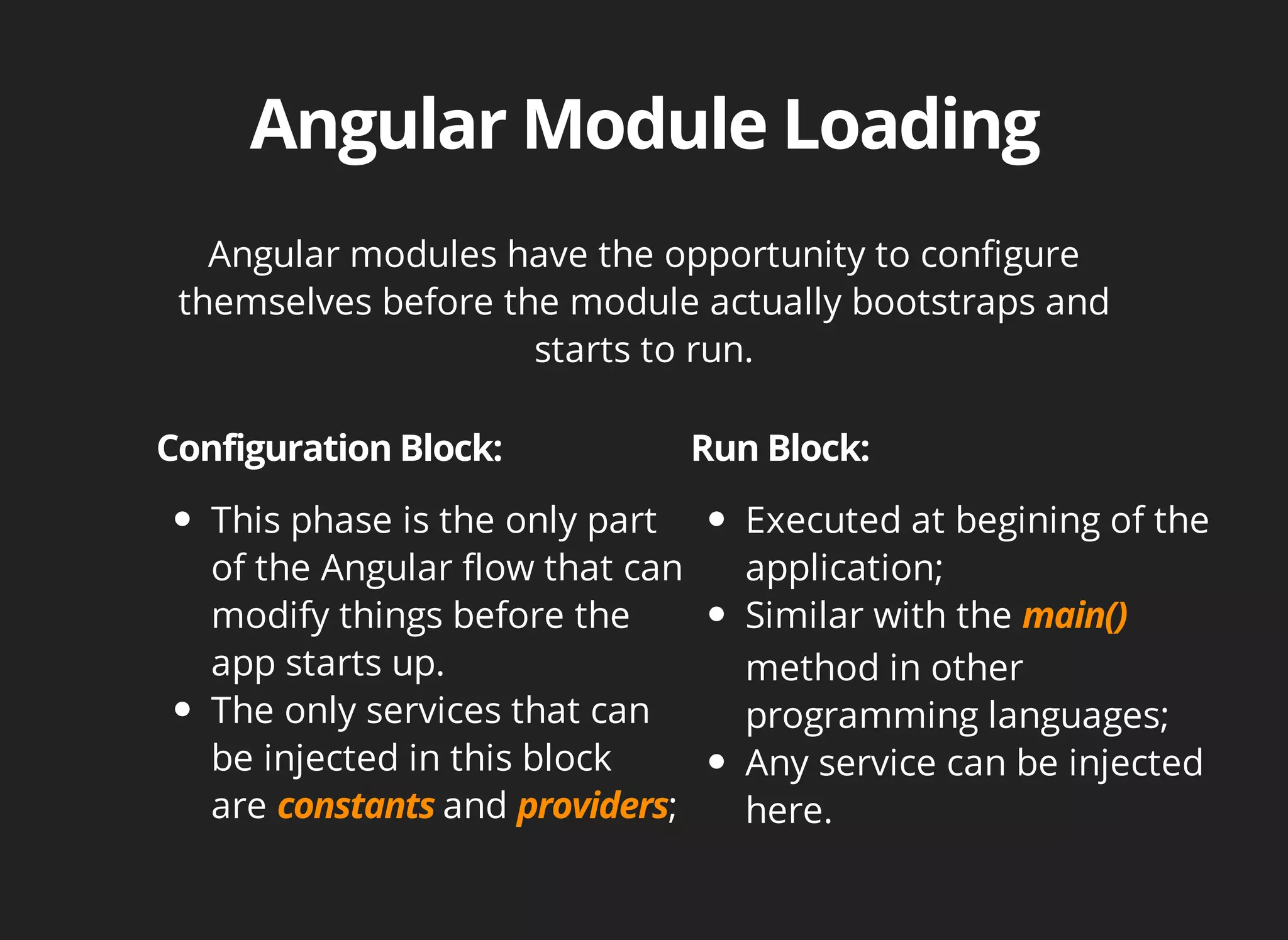
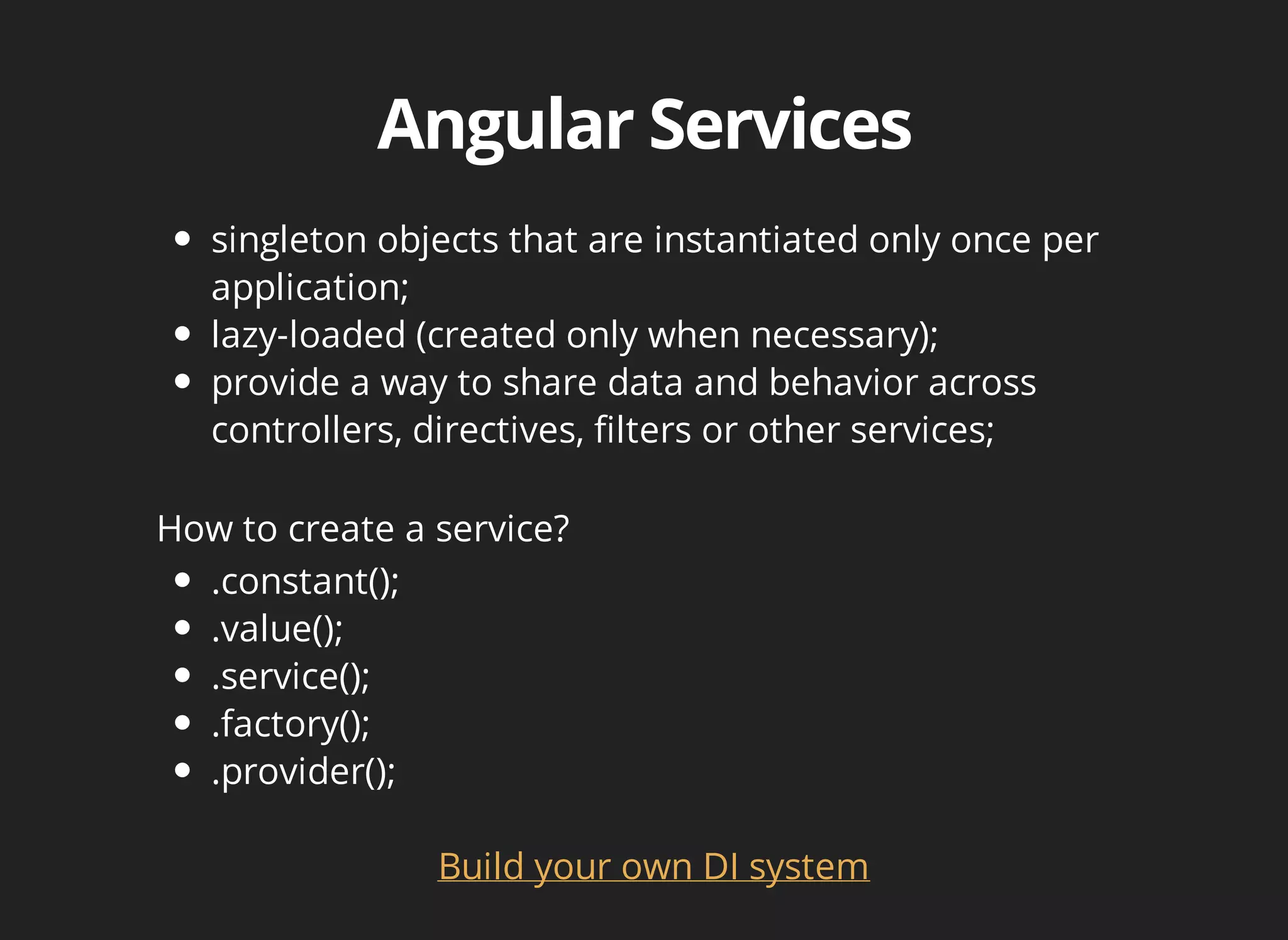
![used for registering a constant service such as string,
number, array, object or function;
doesn't have the ability to use other services (have
dependencies);
angular
.module('myApp', [])
.constant('apiUrl', 'http://localhost:8080')
.config(['apiUrl', function(apiUrl){
//apiUrl can be used here
}])
.run(['$rootScope', function($rootScope){
//apiUrl can be used here
}]);](https://image.slidesharecdn.com/dependency-injection-pattern-in-angular-141022075431-conversion-gate01/75/Dependency-Injection-pattern-in-Angular-8-2048.jpg)
![used for registering a value service such as string,
number, array, object or function;
doesn't have the ability to use other services (have
dependencies);
angular
.module('myApp', [])
.value('objectValue', {
foo: 'bar'
})
.run(['$rootScope', 'objectValue',
function($rootScope, objectValue){
$rootScope.foo = objectValue.foo;
}
]);](https://image.slidesharecdn.com/dependency-injection-pattern-in-angular-141022075431-conversion-gate01/75/Dependency-Injection-pattern-in-Angular-9-2048.jpg)
![used for registering a
service factory which will be
to return the
;
ability to use other services
(have dependencies);
service initialization;
delayed/lazy initialization.
angular
.module('myApp', [])
.factory('myFactory', function(){
var data; //private variable
return {
fetchData: function(){
//business to populate data
},
getData: function(){
return data;
}
}
})
.run(['$rootScope', 'myFactory',
function($rootScope, myFactory){
myFactory.fetchData();
$rootScope.data = myFactory.getData();
}
]);](https://image.slidesharecdn.com/dependency-injection-pattern-in-angular-141022075431-conversion-gate01/75/Dependency-Injection-pattern-in-Angular-10-2048.jpg)
![used for registering a
service constructor which
will be invoked
with to create the
;
same as factory;
angular
.module('myApp', [])
.service('myService', function(){
var data; //private variable
this.fetchData= function(){
//business to populate data
};
this.getData= function(){
return data;
};
});
.factory('myService', function(){
var Service = function(){
var data; //private variable
this.fetchData= function(){
//business to populate data
};
this.getData= function(){
return data;
};
};
return new Service();
});](https://image.slidesharecdn.com/dependency-injection-pattern-in-angular-141022075431-conversion-gate01/75/Dependency-Injection-pattern-in-Angular-11-2048.jpg)
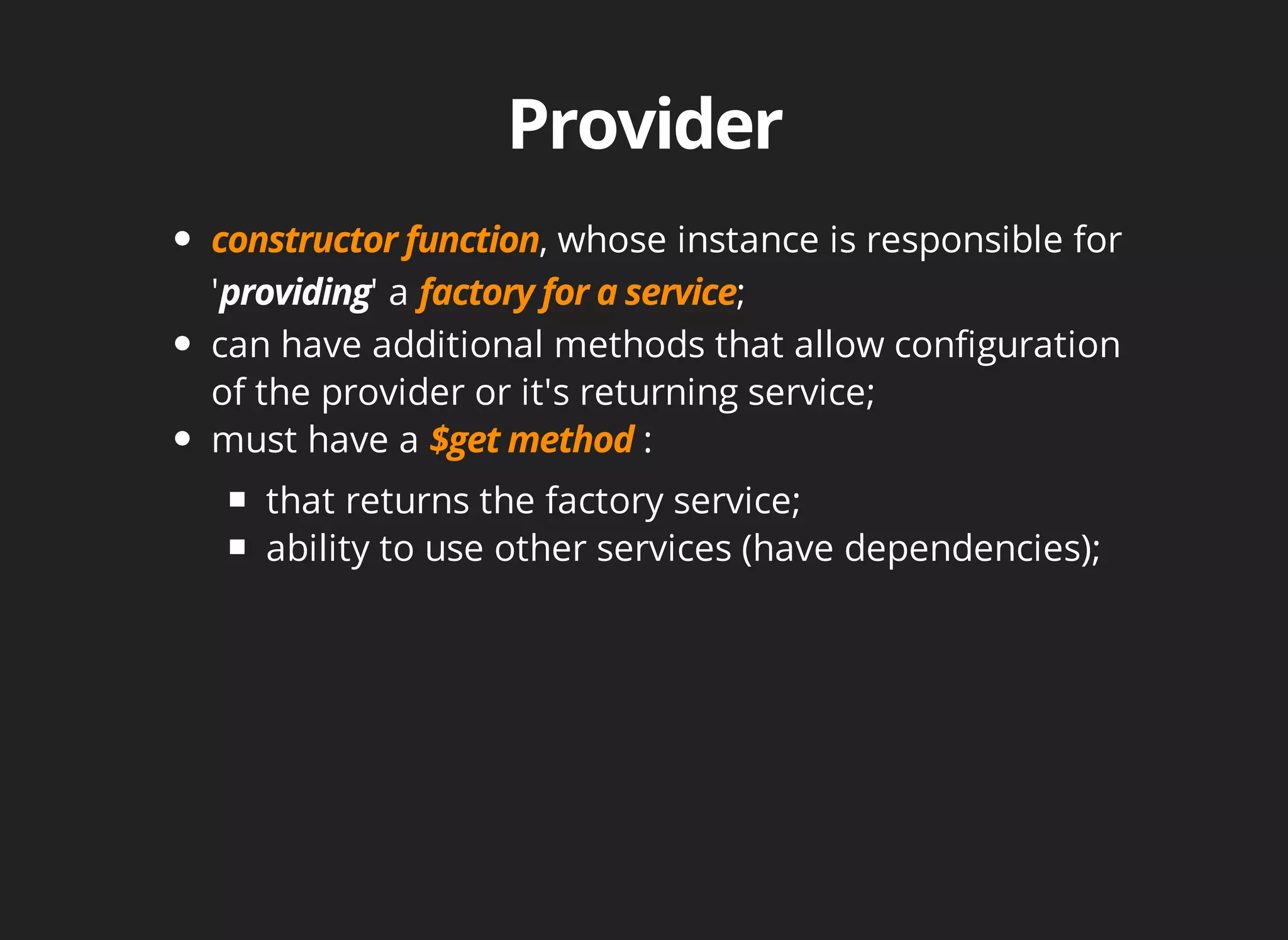
![angular
.module('myApp', [])
.provider('myFactory', function(){
var configVar = 'value';
//The factory Service - can have any dependency
this.$get = ['$http', function($http){
var data; //private variable
return{
fetchData: function(){
//business to populate data
},
getData: function(){
return data;
}
};
}];
//Config method
this.config = function(config){
configVar = config;
};
})
.config(['myFactoryProvider', function(myFactoryProvider){
myFactoryProvider.config('Overriden value');
}])
.run(['$rootScope', 'myFactory',
function($rootScope, myFactory){
myFactory.fetchData();
$rootScope.data = myFactory.getData()
}
]);](https://image.slidesharecdn.com/dependency-injection-pattern-in-angular-141022075431-conversion-gate01/75/Dependency-Injection-pattern-in-Angular-13-2048.jpg)
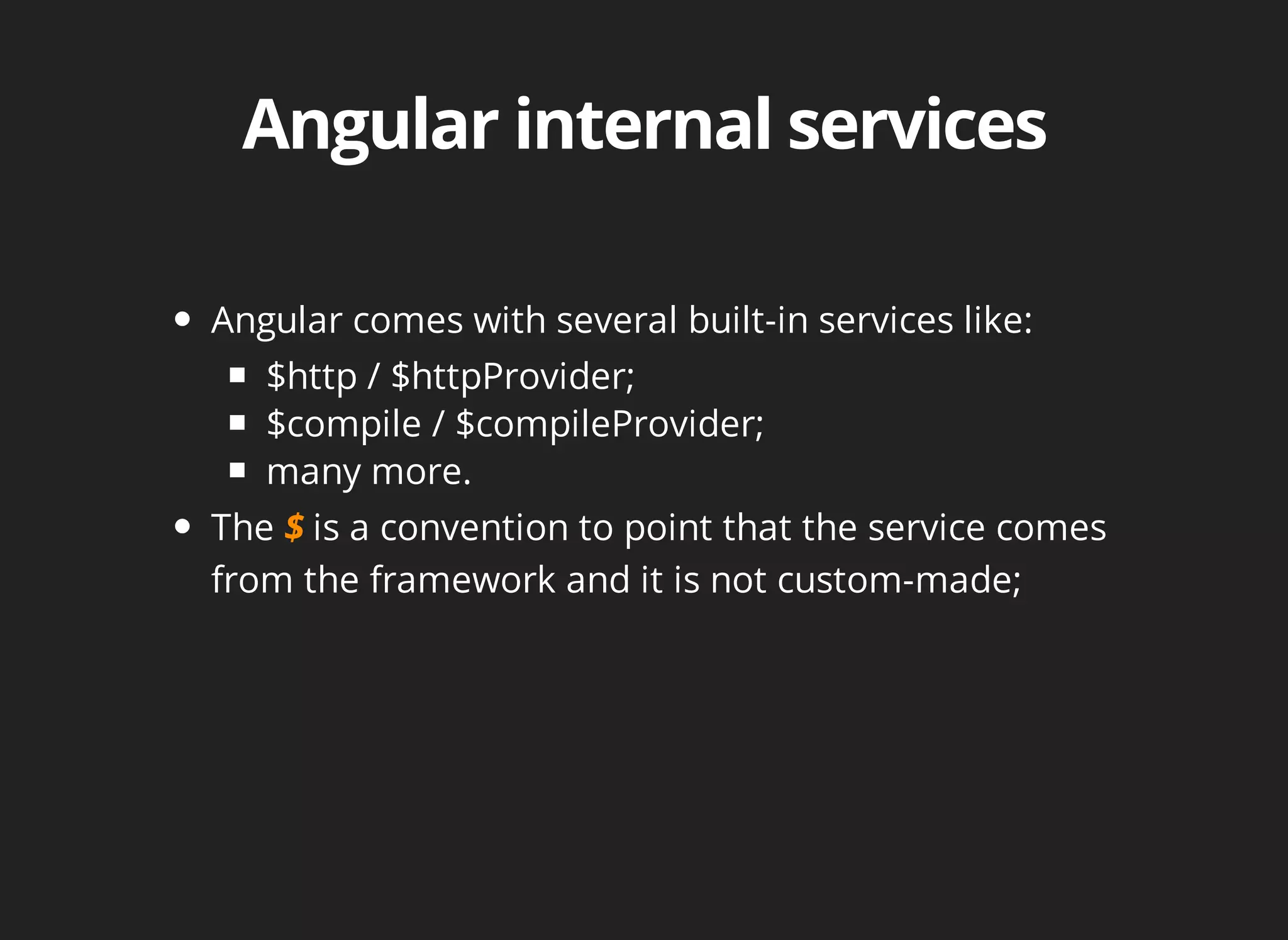
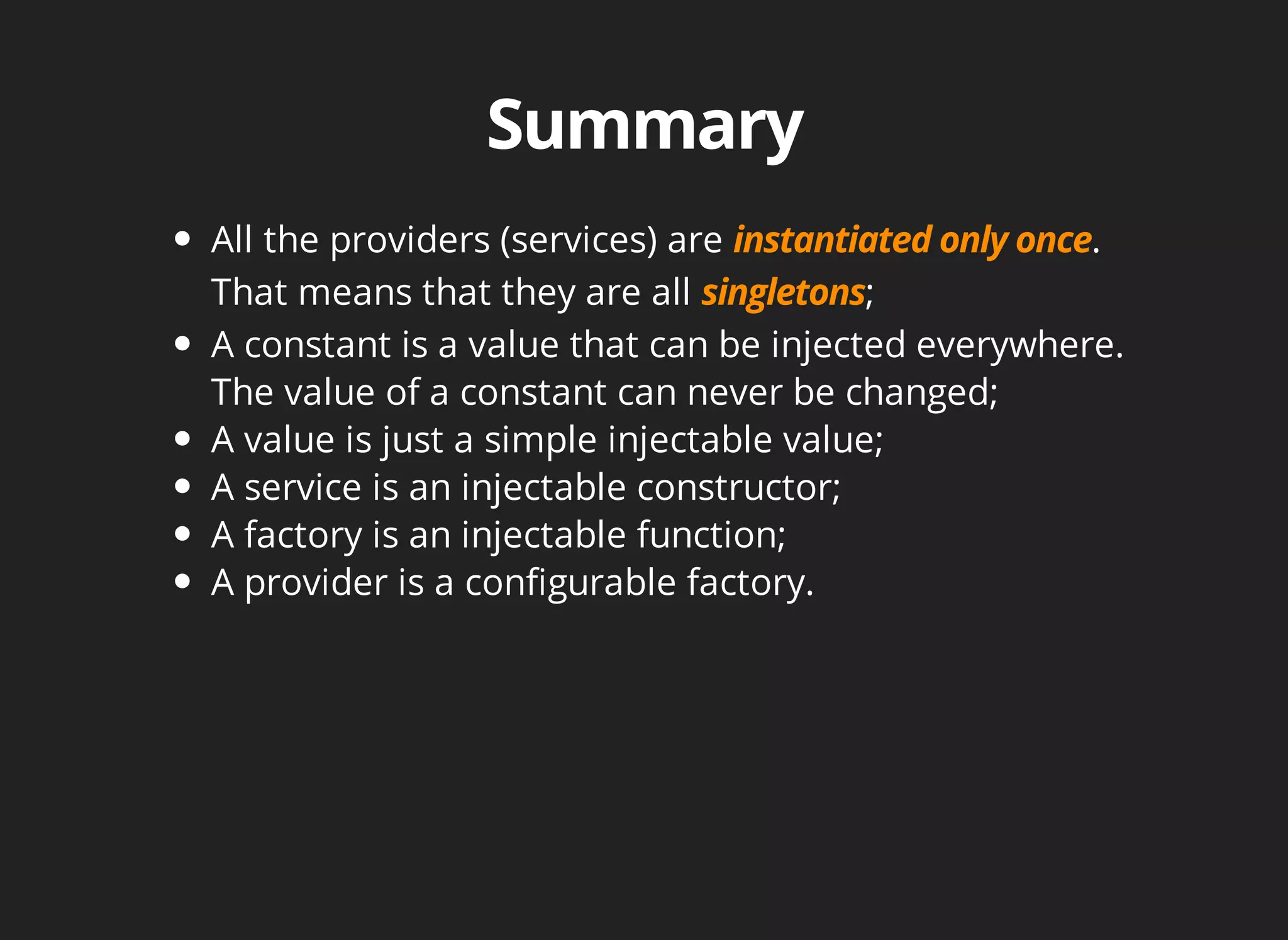


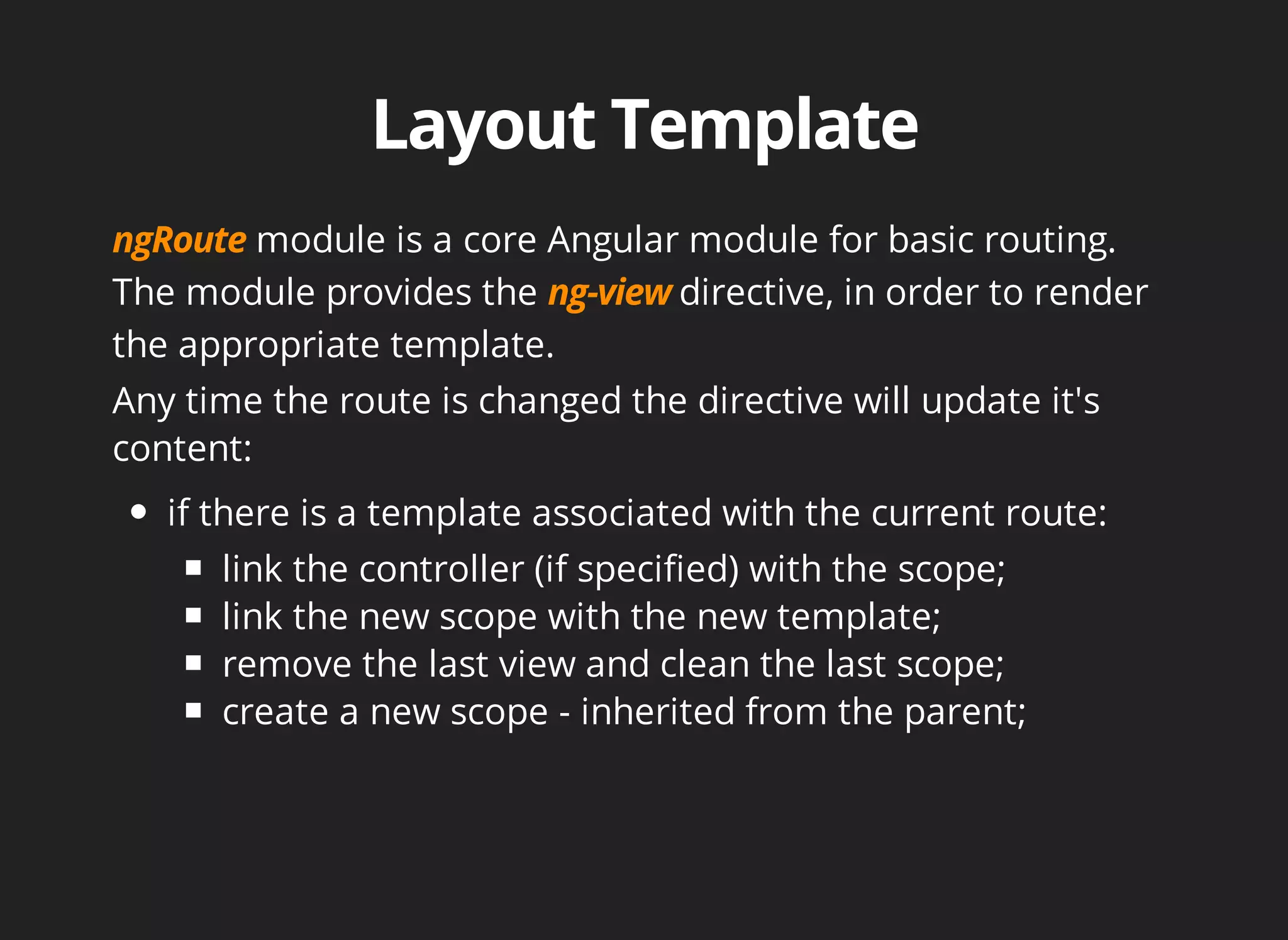
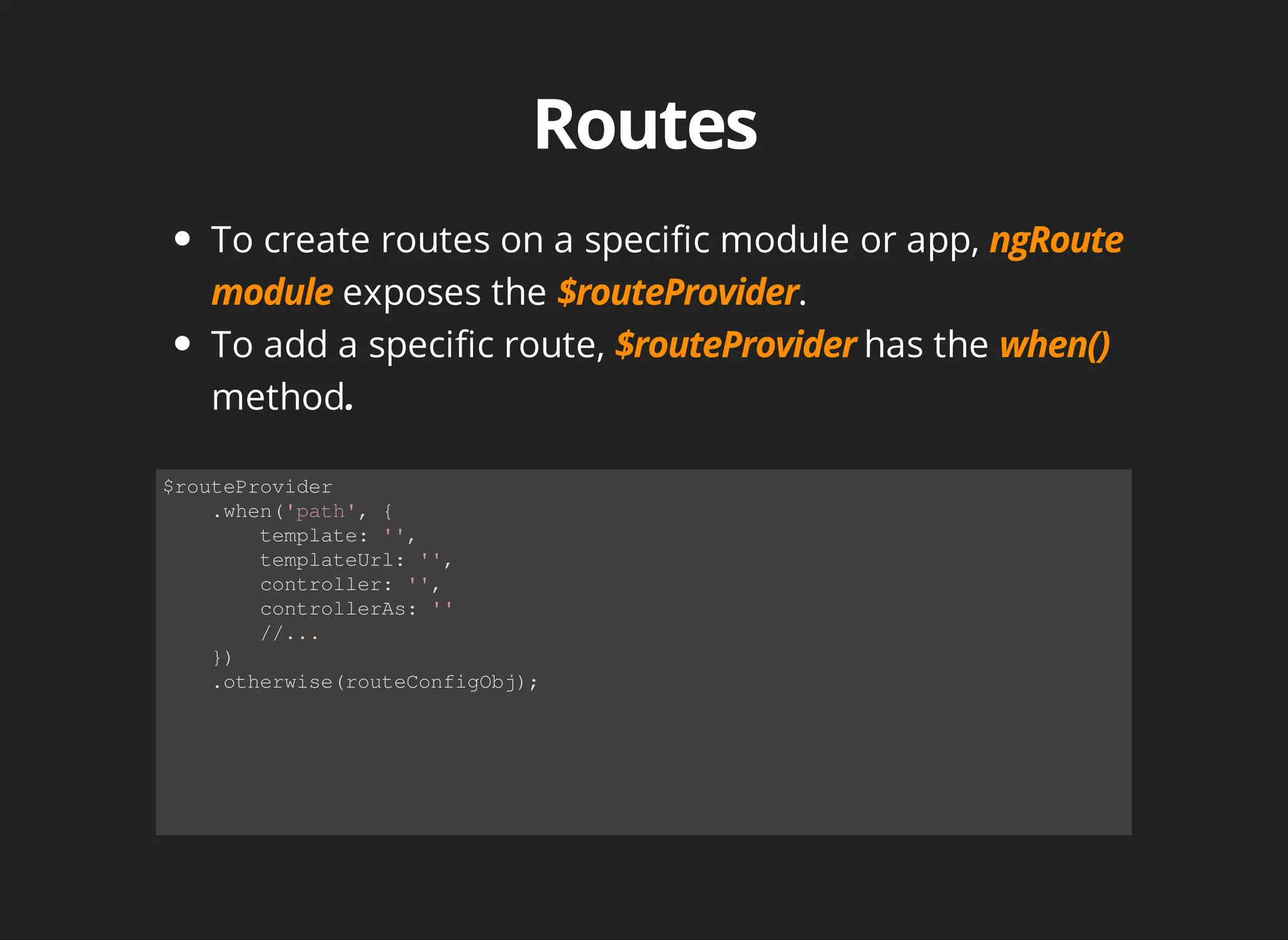
![<html ng-app="myApp">
<head>...</head>
<body>
<header>
<h1>My app</h1>
<ul>
<li><a href="#/">Home</a></li>
<li><a href="#/about">About</a></li>
</ul>
</header>
<div class="content">
<div ng-view></div>
</div>
</body>
</html>
angular
.module('myApp', ['ngRoute'])
.config(['$routeProvider', function($routeProvider){
$routeProvider
.when('/', {
template: '<h2>{{page}}</h2>',
controller: ['$scope', function($scope){
$scope.page = 'home';
}]
})
.when('/about', {
template: '<h2>{{page}}</h2>',
controller: ['$scope', function($scope){
$scope.page = 'about';
}]
})
.otherwise({redirectTo: '/'});
}]);
Plunker Example](https://image.slidesharecdn.com/dependency-injection-pattern-in-angular-141022075431-conversion-gate01/75/Dependency-Injection-pattern-in-Angular-20-2048.jpg)
